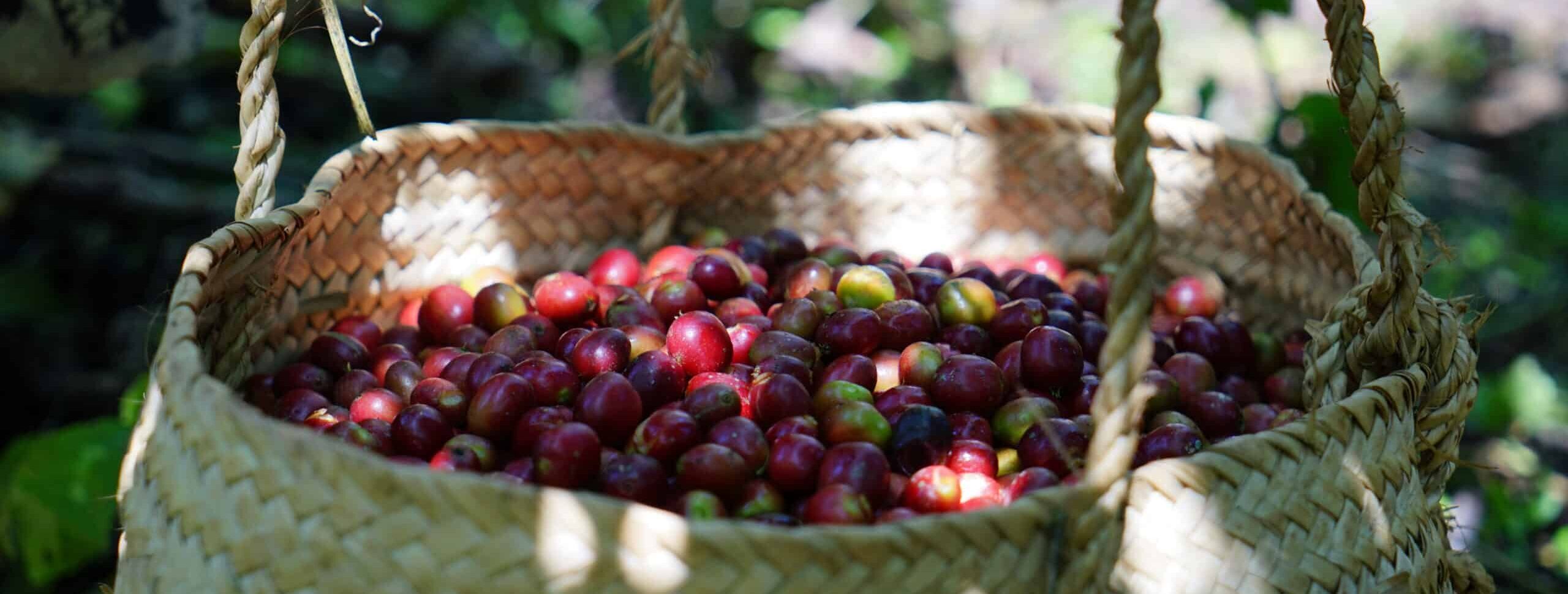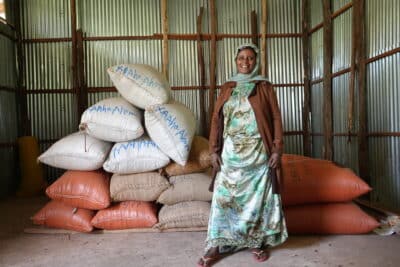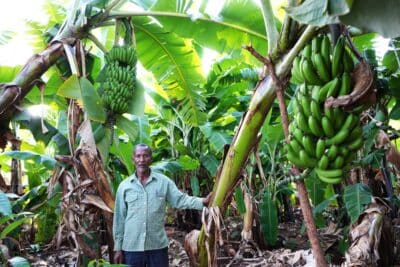News
Ethiopia
13 May 2025
Forest coffee cultivation: a win-win for conservation and livelihoods
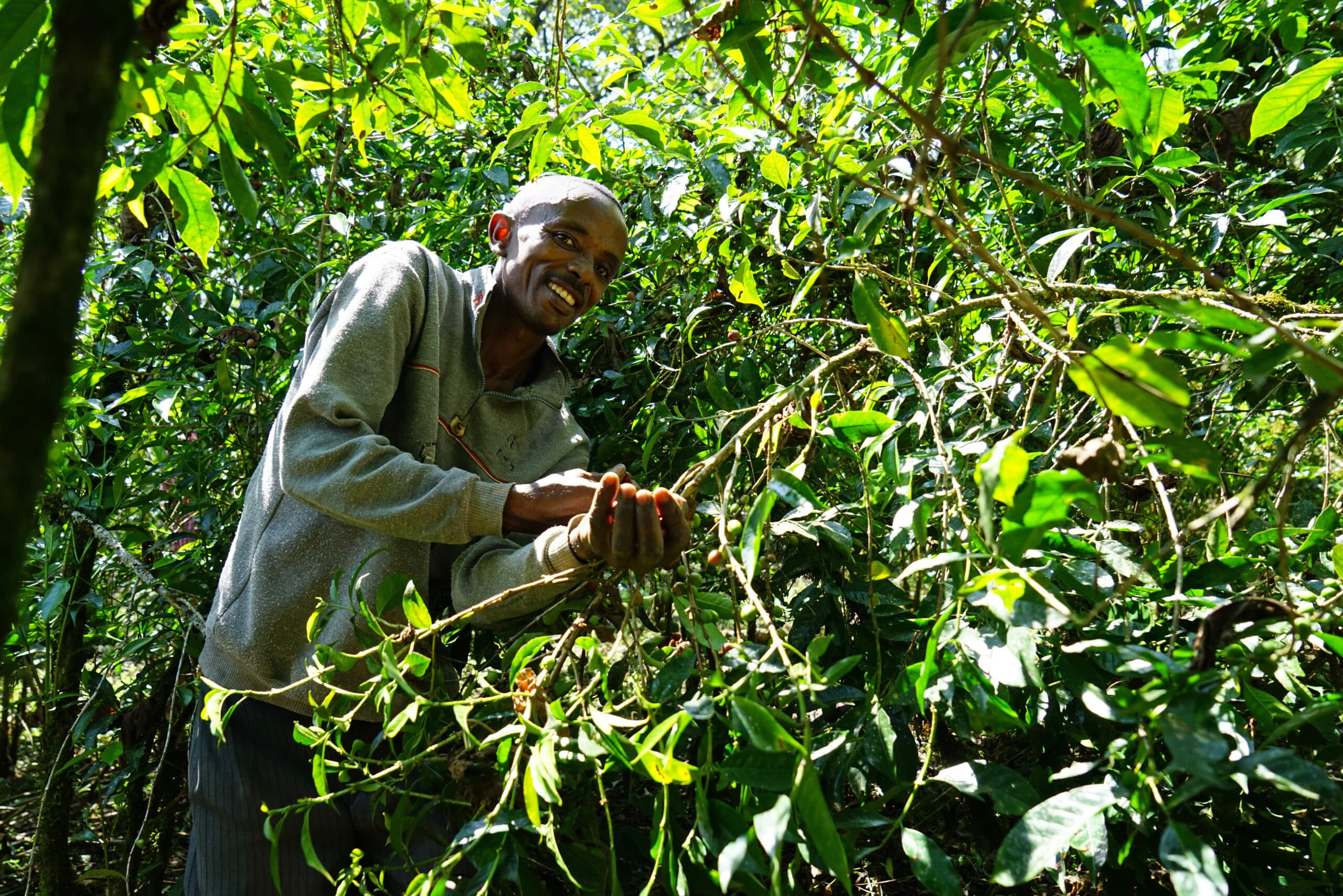
A new report published by the NGO Farm Africa outlines how a transformative forest conservation and sustainable agriculture initiative in south-eastern Ethiopia has concluded with striking success, demonstrating that economic resilience and environmental stewardship can reinforce each other.
The report, Coffee for conservation – Protecting forests by growing a thriving forest coffee value chain, charts how a three-year Farm Africa project in the ecologically vital Ilu Ababor Zone of Ethiopia’s Oromia Regional State protected natural forests while improving the livelihoods of 4,000 people through sustainable coffee production and alternative income sources.
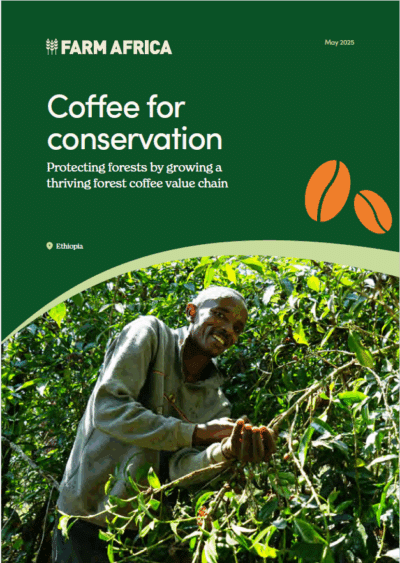
Coffee for conservation: Protecting forests by growing a thriving forest coffee value chain
More info
Country
Ethiopia
Key focus areas
Connect farmers to markets
Increase incomes
Protect ecosystems
Coffee for conservation: Protecting forests by growing a thriving forest coffee value chain
This learning paper describes how a three-year Farm Africa project in the ecologically vital Ilu Ababor Zone of Ethiopia successfully protected natural forests while improving the livelihoods of 4,000 people through sustainable coffee production and alternative income sources.
Download (1.04mb)

Country
Ethiopia
Key focus areas
Connect farmers to markets
Increase incomes
Protect ecosystems
With its rich forest ecosystems, Ilu Ababor Zone plays a critical role regionally in water regulation and globally in carbon sequestration and biodiversity conservation. However, these forests are under intense pressure as increasing population, dwindling fertility of agricultural land and limited livelihood opportunities drive deforestation.
Implemented in partnership with government agencies and working closely with local Participatory Forest Management Cooperatives (PFMCs), Farm Africa’s project developed economic incentives for 15 forest-dependent communities living in conservation ‘hotspots’ in the area to protect the forests.
“Thanks to the knowledge we acquired, we are now skilled and capable of independently managing our coffee business without relying on external support.”

Mulugeta Tafesse
Chairman, Abdi Bori Participatory Forest Management Cooperative
Central to the effort was support for community-led businesses cultivating and selling Arabica coffee, an endangered plant that still thrives in its natural forest habitat in Ilu Ababor. The traditional practice of harvesting wild forest coffee, which thrives in the shade of forest trees, preserves biodiversity and reduces deforestation by giving coffee farmers an incentive to protect the forest.
Through this project, Farm Africa and local partners helped smallholder farmers enhance the quality and marketability of forest coffee, while also helping to improve productivity of agricultural land, develop other forest-friendly income streams and improve institutional capacity in natural resource management.
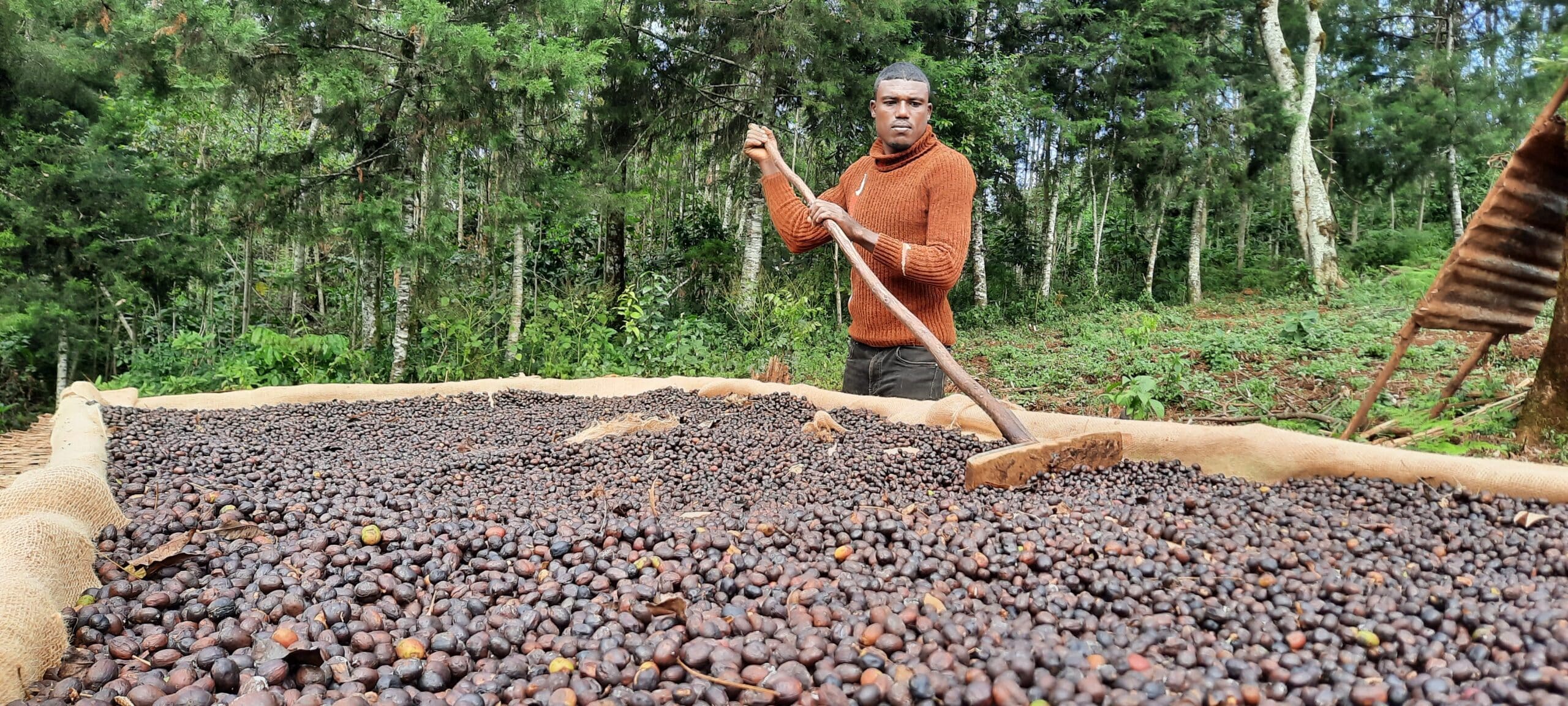
Scrupulous attention to post-harvest handling has transformed the quality of forest coffee.
Key outcomes of the project include:
· a 43% reduction in the average annual deforestation rate
· a 45% real-value increase in forest coffee income among coffee producers
· a 15% real-value increase in average household incomes (including non-coffee producers)
· alignment of PFMC bylaws with national forest policy
· a shift in average household dietary diversity category from ‘medium’ to ‘high’.
The development of market connections played an important role in the project’s success. For example, Farm Africa supported Abdi Bori PFMC to secure an Organic and National Organic Programme licence, enabling them to earn a premium amounting to USD 17,600.
“Thanks to the knowledge we acquired, we are now skilled and capable of independently managing our coffee business without relying on external support,” says Chairman Mulugeta Tafesse.
“This integrated model of conservation and business development offers a powerful blueprint for other forested regions facing economic and ecological challenges.”
Teferra Amare
Farm Africa Project Coordinator
“The Forest Coffee project shows that protecting nature doesn’t have to mean sacrificing income. With ingenuity we can grow profitable new income streams rooted in production methods that restore and protect our ecosystems,” says Farm Africa Project Coordinator Teferra Amare. “This integrated model of conservation and business development offers a powerful blueprint for other forested regions facing economic and ecological challenges.”
As Farm Africa and partners reflect on the project’s achievements, the focus now shifts to scaling its lessons. The community-led approach, paired with government partnership and market integration, sets the stage for broader adoption across Ethiopia and beyond.
